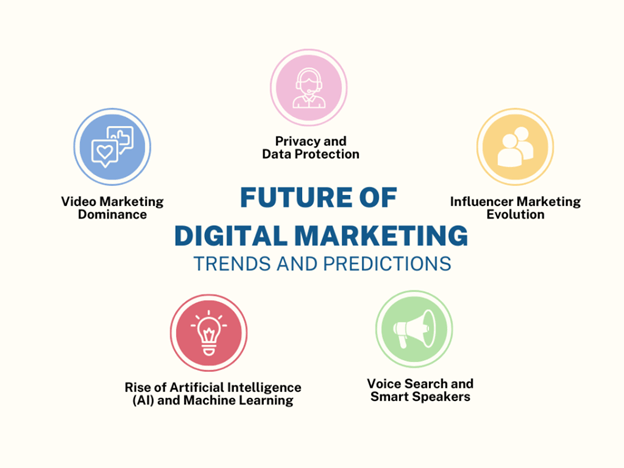The Zuckerberg-Trump Dynamic: Implications For Tech And Governance

Table of Contents
Trump's Use of Facebook and its Impact
Trump's masterful use of Facebook significantly impacted the political landscape. Facebook's role as a dominant social media platform provided him with unprecedented access to voters.
Amplifying Political Messaging
Facebook became a cornerstone of Trump's communication strategy. He leveraged its capabilities to bypass traditional media gatekeepers and connect directly with his supporters.
- Unprecedented reach during the 2016 campaign: Trump's campaign effectively utilized Facebook's targeting capabilities to reach specific demographics with tailored messages, contributing to his surprising victory.
- Use of targeted advertising to micro-segment voters: This allowed for highly personalized messaging, maximizing campaign efficiency and impacting voter behavior.
- Dissemination of misinformation and propaganda: The platform's algorithms, designed to maximize engagement, inadvertently amplified the spread of false or misleading information, raising concerns about its impact on public opinion.
The 2020 Election and Content Moderation
The 2020 election further highlighted the complexities of the Zuckerberg-Trump dynamic. Facebook's content moderation decisions regarding Trump's posts, particularly those related to election fraud claims, ignited a firestorm of debate about censorship and free speech.
- Controversial decisions on removing or labeling misleading content: Facebook's actions were criticized by both conservatives who saw it as censorship and liberals who argued it didn't go far enough.
- Accusations of bias from both sides of the political spectrum: The lack of transparency and inconsistent application of content moderation policies fueled accusations of bias, undermining public trust.
- Impact on the spread of disinformation and election integrity: The spread of misinformation on Facebook directly impacted the integrity of the 2020 election, raising concerns about the platform's responsibility in safeguarding democratic processes.
Zuckerberg's Testimony and Congressional Scrutiny
Zuckerberg's appearances before Congress became synonymous with the scrutiny faced by big tech in the wake of the Zuckerberg-Trump dynamic. He faced intense questioning concerning Facebook's role in various controversies.
Facing Congressional Hearings
These hearings highlighted the difficult balancing act faced by social media companies: upholding free speech principles while mitigating the spread of harmful content.
- Difficulty in balancing free speech principles with the need for content moderation: Zuckerberg's testimony showcased the challenge of developing and implementing effective content moderation policies without stifling free expression.
- Calls for greater regulation of social media platforms: The hearings spurred significant calls for increased government oversight and regulation of social media companies like Facebook.
- Public perception of Facebook’s responsibility for the spread of harmful content: The hearings shaped public perception of Facebook's responsibility for the spread of misinformation and its impact on society.
Evolving Regulatory Landscape
The Zuckerberg-Trump dynamic significantly contributed to a rapidly evolving regulatory landscape for tech companies.
- Increased focus on antitrust issues and market dominance: Concerns about Facebook's market power and potential anti-competitive practices intensified, leading to investigations and legal challenges.
- Debates over Section 230 and its implications for online content moderation: The debate surrounding Section 230, a US law shielding online platforms from liability for user-generated content, reached a fever pitch.
- Growing international efforts to regulate social media platforms: Globally, governments began exploring new regulatory frameworks to address the challenges posed by social media platforms.
Long-Term Implications for Tech and Governance
The long-term consequences of the Zuckerberg-Trump dynamic are far-reaching and continue to unfold.
The Future of Social Media Regulation
The relationship has accelerated the global conversation around social media regulation.
- Balancing free speech with the prevention of harm: This continues to be a central challenge for policymakers and tech companies alike.
- Developing effective mechanisms for content moderation: The need for transparent, consistent, and effective content moderation practices is paramount.
- International cooperation on tech regulation: Global cooperation is crucial to address the transnational nature of online content and its impact.
Impact on Political Discourse and Democracy
The Zuckerberg-Trump dynamic revealed the profound influence of technology on political discourse and democratic processes.
- The spread of misinformation and its impact on elections: The ease with which misinformation spreads online poses a serious threat to democratic institutions.
- The erosion of trust in traditional media and institutions: The rise of social media has contributed to a decline in trust in traditional news sources.
- The need for media literacy and critical thinking skills: Equipping citizens with the skills to critically evaluate online information is vital in navigating the digital age.
Conclusion
The Zuckerberg-Trump dynamic represents a pivotal moment in the relationship between technology and governance. The challenges posed by the spread of misinformation, the power of social media platforms, and the need for effective regulation remain significant. Understanding this complex relationship is crucial for navigating the future of online discourse and ensuring the integrity of democratic processes. Further research and thoughtful policy discussions are essential to address the ongoing implications of the Zuckerberg-Trump dynamic, ensuring a healthier and more responsible digital environment. We must continue to analyze this complex relationship to better understand its effects on both technology and governance, and develop strategies to mitigate its negative impacts.

Featured Posts
-
 Bitcoins Price Trajectory Assessing The Impact Of Trumps 100 Day Speech
May 08, 2025
Bitcoins Price Trajectory Assessing The Impact Of Trumps 100 Day Speech
May 08, 2025 -
 Twins Sweep Angels Series As Hitters Continue To Struggle
May 08, 2025
Twins Sweep Angels Series As Hitters Continue To Struggle
May 08, 2025 -
 Browns Sign Veteran Wide Receiver And Return Specialist
May 08, 2025
Browns Sign Veteran Wide Receiver And Return Specialist
May 08, 2025 -
 Fitorja E Veshtire E Psg Analiza E Performances Se Pjeses Se Dyte
May 08, 2025
Fitorja E Veshtire E Psg Analiza E Performances Se Pjeses Se Dyte
May 08, 2025 -
 Nuggets Westbrook Leads Jokics Birthday Celebration With Special Rendition
May 08, 2025
Nuggets Westbrook Leads Jokics Birthday Celebration With Special Rendition
May 08, 2025
Latest Posts
-
 29 Years Of Service Outer Banks Coast Guard Veteran Ryan Gentry Honored
May 08, 2025
29 Years Of Service Outer Banks Coast Guard Veteran Ryan Gentry Honored
May 08, 2025 -
 Longtime Coast Guard Member Ryan Gentry Receives Honor In Outer Banks
May 08, 2025
Longtime Coast Guard Member Ryan Gentry Receives Honor In Outer Banks
May 08, 2025 -
 Analyzing The 67 Million Ethereum Liquidation Predicting Future Trends
May 08, 2025
Analyzing The 67 Million Ethereum Liquidation Predicting Future Trends
May 08, 2025 -
 7 Paramount Movies You Probably Missed
May 08, 2025
7 Paramount Movies You Probably Missed
May 08, 2025 -
 The Best Of Both Worlds 5 Military Movies With Action And Emotional Resonance
May 08, 2025
The Best Of Both Worlds 5 Military Movies With Action And Emotional Resonance
May 08, 2025
